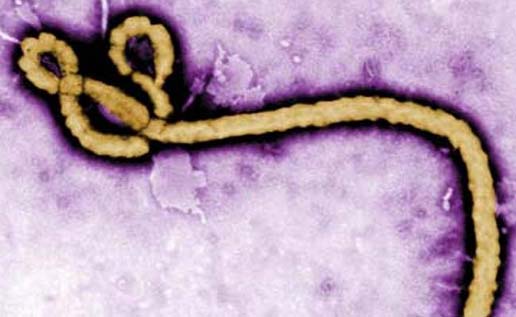
AFP, Tokyo :
A Japanese research team said today it had developed a field test for Ebola that gives results in just over 11 minutes – down from the 90-minute test used now.
The breakthrough by Nagasaki University’s Institute of Tropical Medicine will allow medics to move much more quickly in treating people with the haemorrhagic fever, Professor Jiro Yasuda told AFP.
“The result time was unexpectedly short,” said Yasuda of the trial conducted in Guinea last month on 100 samples, of which 47 proved positive.
The Guinean government has now asked the institute and its collaboration partner Toshiba to supply equipment to roll out the test, he added.
The test hinges on what the researchers have called a “primer”, a substance that amplifies only those genes specific to the Ebola virus found in a blood sample or other bodily fluid.
Using existing techniques, ribonucleic acid (RNA) – biological molecules used in the coding of genes – is extracted from any viruses present in a sample.
This is then used to synthesise the viral DNA, which can be mixed with the primer and then heated to 60-65 degrees Celsius (140-149 Fahrenheit).
If Ebola is present, DNA specific to the virus is amplified by the action of the primers. The by-products from the process cause the liquid to become cloudy, providing visual confirmation, Yasuda said.
Currently, a method called polymerase chain reaction, or PCR, is used to detect the Ebola virus.
A Japanese research team said today it had developed a field test for Ebola that gives results in just over 11 minutes – down from the 90-minute test used now.
The breakthrough by Nagasaki University’s Institute of Tropical Medicine will allow medics to move much more quickly in treating people with the haemorrhagic fever, Professor Jiro Yasuda told AFP.
“The result time was unexpectedly short,” said Yasuda of the trial conducted in Guinea last month on 100 samples, of which 47 proved positive.
The Guinean government has now asked the institute and its collaboration partner Toshiba to supply equipment to roll out the test, he added.
The test hinges on what the researchers have called a “primer”, a substance that amplifies only those genes specific to the Ebola virus found in a blood sample or other bodily fluid.
Using existing techniques, ribonucleic acid (RNA) – biological molecules used in the coding of genes – is extracted from any viruses present in a sample.
This is then used to synthesise the viral DNA, which can be mixed with the primer and then heated to 60-65 degrees Celsius (140-149 Fahrenheit).
If Ebola is present, DNA specific to the virus is amplified by the action of the primers. The by-products from the process cause the liquid to become cloudy, providing visual confirmation, Yasuda said.
Currently, a method called polymerase chain reaction, or PCR, is used to detect the Ebola virus.

